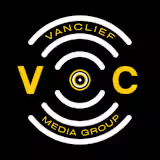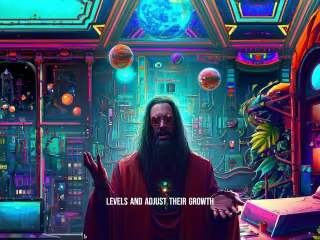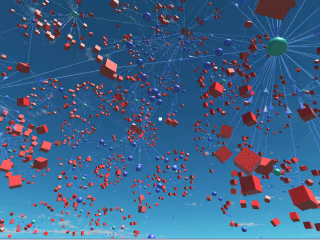The Gilded Cage: How Wealth and Media Manipulate Modern Democra…
In the global theater of politics, democracy is often upheld as the gold standard of governance, an emblem of freedom and fairness.
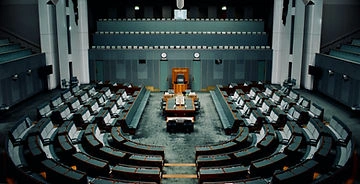
However, in recent times, it has become increasingly evident that these democratic systems can be manipulated, especially by forces of wealth and media, leading to significant challenges and distortions.
This paper embarks on a nuanced exploration of these challenges, investigating the complex interplay between democratic ideals, media influence, and financial power.
Background
In the discussion of political systems, semantics plays a crucial role. Democracy, as a term, carries diverse connotations in different cultural and political contexts.
Zakaria, in "The Future of Freedom", illuminates this ambiguity by distinguishing between democracy and "liberal democracy." He asserts that for Western societies, democracy implies not only free and fair elections but also a bundle of freedoms encapsulated in the concept of "constitutional liberalism", including the rule of law and a separation of powers (Zakaria, 17).
However, this nuanced understanding is often lost in translation across cultural and ideological borders, leading to the term's widespread misuse and misinterpretation.
Moreover, the notion of democracy has, in many instances, been exploited for undemocratic ends.

Zakaria reminds us that even Adolf Hitler assumed power through free elections (Zakaria, 17), highlighting the paradoxical risks inherent within democratic processes.
Furthermore, the excessive reliance on gatekeeping in democratic systems, as Levitsky discusses, can paradoxically foster an environment of unaccountability, leading to a disconnect between party bosses and the people they're meant to represent (Levitsky, 41).
Within my writing here, I attempt to navigate the intricate dynamics of democracy, media, and wealth, and how they can distort the democratic process.
The inquiry will be guided by an investigation into the theories proposed by renowned scholars, an analysis of the role of media and wealth in democratic systems, a comparative study of different democracies, and finally, a reflection on potential solutions for the challenges identified.
As we delve deeper into the labyrinth of democracy, it becomes essential to question whether the democratic systems we uphold are true to their core principles or if they have become shadowy facades manipulated by media influence and financial power.
The paper is divided into several sections, each aimed at examining a distinct aspect of our central theme.

From dissecting the power of propaganda in shaping democratic narratives to exploring the paradoxes within the democratic system itself, each section adds a layer of understanding to our multifaceted exploration of contemporary democracies.
It culminates with a comparative analysis and personal reflections, fostering an enriched understanding of the democratic system in its present state and looking towards its future potential.
The Power of Propaganda In Democracies
Edward Bernays, in his work "Propaganda," which became popular in the late 1920s, offers an invaluable examination of the deep-seated impact of media and manipulation on public perception and decision-making.
Bernays illuminates how a well-crafted narrative can shape public consciousness, asserting that "the minority has discovered a powerful help in influencing majorities.
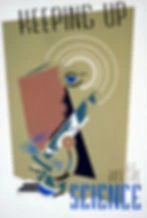
It has been found possible so to mold the mind of the masses that they will throw their newly gained strength in the desired direction" (Bernays, 37).
This concept illuminates the inherent paradox of modern democracies: while ostensibly granting power to the masses, they simultaneously enable a subtle manipulation of this power.
Bernays underscores the potency of such influence, declaring "modern propaganda is a consistent, enduring effort to create or shape events to influence the relations of the public to an enterprise, idea, or group" (Bernays, 52).
In the present age, where mass media has evolved into an omnipresent force, Bernays' insights carry significant weight.
With the advent of social media and the digital revolution, the scope for influencing public opinion has expanded exponentially. It is no longer necessary for people to physically congregate to be subject to the forces of mass psychology.
Bernays foresaw this reality, asserting,
"If you can influence the leaders, either with or without their conscious cooperation, you automatically influence the group which they sway. But men do not need to be actually gathered together in a public meeting or in a street riot, to be subject to the influences of mass psychology" (Bernays, 73).
In today's era, leaders' influence radiates from their digital platforms, shaping the discourse and directing public sentiment. An emblematic instance of this phenomenon is the increasing sway of social media influencers, politicians, and business magnates who can mold public opinion through tweets, posts, and shares.
This influence extends to political arenas as well, with digital campaigns playing pivotal roles in elections and policy debates.
However, this power of influence, often wielded without checks and balances, can be weaponized to propagate false narratives, deepen social divides, and destabilize democratic processes.
Instances of fake news, misinformation campaigns, and echo chambers on social media platforms offer troubling examples of these trends.
Thus, as we reflect on the contemporary challenges of democracies, it becomes evident that the manipulation of public consciousness, a phenomenon Bernays astutely identified, plays a significant role.
Our democracies are not merely arenas of freedom and representation; they have also become battlegrounds for narrative control and mass manipulation.
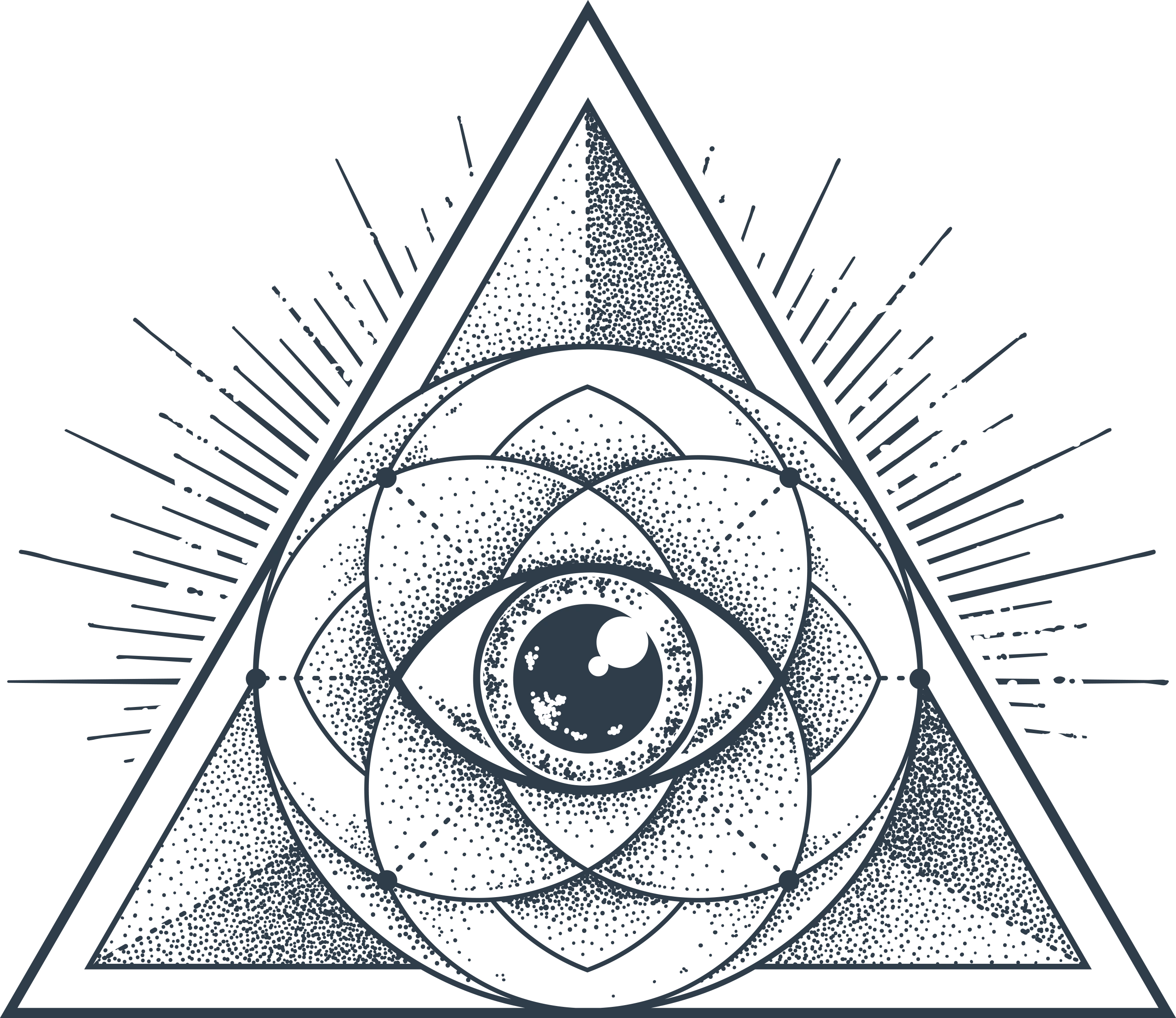
As we strive to navigate these complexities, a critical examination of the media's role and the mechanisms of propaganda becomes paramount.
Consequently, we are led to question: how can democracies guard against these distortions? How can we ensure that the democratic conversation is based on facts and genuine dialogue rather than controlled narratives and echo chambers?
These questions pose a pressing challenge as we strive to preserve the integrity of our democratic systems amidst the ceaseless churn of the information age.
Financial Influence on Democracies
The intricate dance of democracy is not solely guided by the voting public and the policies they support, but also by the influx of money, particularly in the form of political contributions.
A striking illustration of this can be found in the rise of Super Political Action Committees (Super PACs).
The Fordham Law Review in "Why limits on contributions to Super PACs should survive Citizens United" outlines how,
"two months after the U.S. Supreme Court decided Citizens United v. FEC, the D.C. Circuit Court held all limits on contributions to super PACs unconstitutional.
This is a key difference how ever, Citiznes United allowed for more spending of corperations but still limited contributions to said corperations.
The SpeechNow case allowed for unlimmited contributions and was not even brought to the Supreme Court for decision.
Yes, you heard that right, even at the writing of this article, over a decade after the Circuit Court ruling, the supreme court has not had this case brought to their table, this is due to the Attorney General deeming it "unnecessary" for the court to look at. (This deserves an article on its own)
The circuit court decision in SpeechNow.org v FEC created a regime in which contributions to candidates are limited but in which contributions to 'independent expenditure committees' urging votes for these candidates are unbounded" (Fordham, 2301).

In this scenario, vast amounts of money can flow through these entities to influence political decisions and tilt the democratic scales.
This detachment of political contributions from accountability can severely skew democratic processes, enabling those with significant financial resources to influence policy in their favor.
The candidates they support need not assume responsibility for what these PACs communicate, and these groups typically dissolve once an election concludes, thereby escaping accountability for their actions (Fordham, 2302).
This financial loophole challenges the very foundations of a fair and representative democracy.
As the review aptly states, "no sane legislator would vote in favor of this system of campaign financing, and none ever has."
The United States has this regime because the D.C. Circuit court held that the First Amendment requires it.
"The claim that the constitution requires this topsy-turvy state of affairs, however, is astonishing" (Fordham, 2303).
I will be writing a much larger book on this topic over the next year, diving into the effects, and circumstances around this decision which I promise will leave you dumbfounded at the least.
The State of Democracies
The intertwining influences of wealth and media, in shaping democracies, grow ever more complex when we consider the perspectives presented in Levitsky's "How Democracies Die".
The manipulation of public perception through propaganda and the unchecked influence of wealth on policy are both elements that could contribute to the erosion, or 'death', of democracies.
To explore this further, it's pertinent to examine the role of mass media in promoting narratives that inflame and polarize.
For instance, Levitsky cites an incident where "mass e-mails sent rumors and innuendo through Tea Party circles, including one with a photograph showing President Obama carrying a book, The Post-American World, by CNN host Fareed Zakaria.
The email read: 'THIS WILL CURDLE YOUR BLOOD!!! The name of the book Obama is reading is called "The Post-American World" and it was written by a fellow Muslim'" (Levitsky, 159).
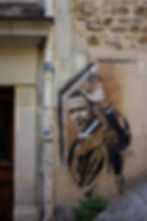
Such instances underscore how misinformation, propagated through digital channels, can skew public perception and breed mistrust.
Further, as Levitsky notes, "in 2010, 69 percent of Republican voters were Fox News viewers, and popular radio talk show hosts such as Rush Limbaugh, Sean Hannity, Michael Savage, Mark Levin, and Laura Ingraham, all of whom have helped to legitimize the use of uncivil discourse, have few counterparts among liberals" (Levitsky, 172).
This emphasizes the power of media in shaping political landscapes and deepening ideological divides.
As we grapple with these challenges, it becomes essential to consider whether these are symptomatic of inherently broken systems or aspects that can be rectified to strengthen democracies.
The Paradox of Democracy
One of the pivotal ideas that surfaces in our exploration of democracy is the inherent tension that exists within the concept itself.
This is what Zac Gershberg, in his work "The Paradox of Democracy", describes as the paradox of democracy:
"a free and open communication environment that, because of its openness, invites exploitation and subversion from within" (Gershberg, 1).
This presents the paradox that while the free flow of ideas and opinions forms the bedrock of democratic societies, the same openness can be manipulated to undermine democratic ideals.
Our democratic communicative environment, the foundation of shared meaning, is perpetually in flux due to media innovation and what Gershberg refers to as treacherous politics.

These forces can disrupt the progress of democratic dialogue, akin to "sending the boulder of democracy rolling back down the hill" (Gershberg, 3).
This idea underscores the ongoing struggle to maintain and protect the sanctity of democratic discourse amidst an evolving media landscape and political landscape.
Moreover, Gershberg asserts that the human endeavor for clear communication remains inherently fraught, continually seeking:
"the task of winning for themselves the full and reconciled mastery of the Tower of Babel" (Gershberg, 16).
This idea underscores the struggle for clear, honest, and effective communication in an environment that can be easily manipulated.
The paradox of democracy becomes even more palpable when we consider how the proliferation of media, from 24-hour cable news to the internet and social media, gave an illusion of the protection of democracy from its worst impulses through freedom of communication.
This perception, Gershberg argues, did not account for the vulnerability of this openness to manipulation and exploitation (Gershberg, 188).
Wealth and media, as examined in previous sections, play a significant role in this paradox.
They have the power to distort democratic dialogue and manipulate public perception, thereby subverting the very openness that characterizes democratic societies.
Case Study: The United States.
With the United States as a focal point, we can explore how this paradox of democracy manifests in the context of a real-world democratic society.

Democracy in the United States, as Zakaria describes, has been one element of a complex political structure.
He posits that within this democratic framework, the United States boasts a rich diversity of institutions and processes, many of which predate democracy and function distinctly undemocratically (Zakaria, 167).
These undemocratic institutions include the Supreme Court, the armed forces, and the Federal Reserve System, all of which are insulated from public pressures and operate entirely separately from the voter (Zakaria, 241).
Interestingly, these are the top three institutions that are highly respected by the American public.
As Zakaria notes, "in poll after poll, when Americans are asked what public institutions they most respect, three bodies are always at the top of their list: Supreme Court, the armed forces, and the federal reserve system" (Zakaria, 241).
This admiration may stem from the perception that these institutions lead rather than follow, operating independently of public opinion and political pressure.
On the contrary, Congress, the most representative and reflective of political institutions, often scores at the bottom of most surveys.
It should be noted However, in a historical rarity, the supreme court may have begun to fall out of favor for some of the nations.
This discrepancy suggests a paradox within the American public's perception of democratic and undemocratic institutions, reflecting a complex dynamic within the democratic system.
This dynamic is not confined to the United States.
Variations of these phenomena can be observed in other democratic societies globally, further illuminating the paradox of democracy. As we delve deeper into this case study, we can uncover more nuances in the relationship between wealth, media, democratic ideals, and the reality of democratic practices.
A powerful parallel can be drawn with the words of Gershberg: "Our collective blindness was understandable. The proliferation of more and more media... provided a legitimate reason for thinking that democracy could be protected from its worst impulses through the freedom of communication" (Gershberg, 188).
This proliferation, while expanding the public sphere and enabling a broader sharing of ideas, has also opened a Pandora's box of manipulation and propaganda.

As we have previously discussed, the media, swayed by the influence of wealth, can manipulate public sentiment and skew democratic processes.
Furthermore, the influence of religious and populist leaders in shaping public opinion cannot be underestimated.
As Zakaria suggests, these figures, who often have the ears of presidents, governors, and talk-show hosts, can significantly impact public discourse:
"Those who do wield power...are the populist priests... who can claim to be speaking not so much for religion but for the people. Truly in this case, vox populi vox Dei. The voice of the People is the voice of God" (Zakaria, 206).
These leaders, utilizing the power of the media, can exploit the openness of democratic communication to further their narratives and agendas.
Taking these points together, it becomes clear that while democracy aims to promote freedom and equality, it is susceptible to the influences of wealth and media.
The result is a distorted public sphere where democratic dialogue can be manipulated, skewing the democratic processes it is supposed to uphold. We can see this distortion not only in the United States but also in democracies worldwide.

In each context, wealth and media have shown their ability to shape public discourse and influence democratic processes.
The result is a paradox: the openness that characterizes democracy is also its most significant vulnerability.
What we see in the United States underlines the complexities and challenges faced by democracies in the contemporary world.
The paradox of democracy, as outlined by Gershberg, becomes more apparent as we delve deeper into the specific contexts of democratic societies.
The ideals of freedom, equality, and openness inherent to the concept of democracy, when met with the realities of media manipulation and financial influence, expose inherent contradictions and challenges that these societies must confront.
Potential Solutions
As we acknowledge these critical issues affecting democracies, it becomes clear that finding solutions is a pressing matter.
The rise of artificial intelligence (AI) and blockchain technology presents opportunities, as well as challenges, for the future of democratic governance.
AI, for example, has the potential to disrupt the current media landscape. As machine learning algorithms become more sophisticated, they could be used to better identify and flag disinformation or propaganda.
However, AI could also be exploited (and most likely currently is) to create more advanced and convincing 'deepfakes', or to micro-target individuals with personalized propaganda.

As a result, rigorous regulation and ethical standards will be essential to ensure AI is used to promote, rather than undermine, democratic values.
Blockchain technology, on the other hand, could revolutionize the transparency and integrity of democratic processes.
Through decentralization, it can remove the undue influence of money by enabling direct, peer-to-peer contributions to political campaigns, thereby disrupting the current power dynamics.
Furthermore, blockchain could secure the voting process, making it virtually impossible to manipulate vote counts. Yet, the transition to such technologies would require widespread digital literacy and trust in these novel systems, which is currently lacking in many populations.
Moreover, as we foresee the future,
the idea that modern democracy may not be democracy at all becomes more prominent.
As discussed earlier, the distortion of democratic dialogue through media manipulation and financial influence challenges our understanding of democratic societies.
This growing discrepancy between the democratic ideal and reality could pave the way for a rise in fascism or authoritarianism, especially as economic inequality increases and populist leaders gain more influence.
Conclusion

While democracy is considered the most free and fair form of government, its manipulation by wealth and media presents significant challenges in the contemporary world.
The interplay between money, media, and democratic processes has led to the distortion of public discourse and decision-making, calling into question the integrity and fairness of our democratic institutions.
However, the very openness and freedom that characterize democracy also hold the potential for its redemption.
By leveraging advances in technology and fostering a culture of critical digital literacy, we may yet strengthen the democratic process and safeguard it from manipulation.
Moreover, these challenges also provide an opportunity to reevaluate and perhaps redefine our understanding of democracy itself. Rather than clinging to the current paradigm, we can envision entirely new forms of governance and society.
We can harness the power of human creativity and technological innovation to create systems that truly embody the ideals of freedom, equality, and openness
It is our responsibility to ensure that these systems serve not the interests of a select few, but the collective good of all.
The future of democracy may be uncertain, but it is also unwritten – and it is ours to shape.
References
Bernays, E. (1928). Propaganda. H. Liveright.
Fordham Law Review. (2010). Why Limits on Contributions to Super PACs Should Survive Citizens United. 81(6), 2299-2330.
Gershberg, Z. (2021). The Paradox of Democracy. Cambridge University Press.
Levitsky, S., & Ziblatt, D. (2018). How Democracies Die. Crown.
Zakaria, F. (2003). The Future of Freedom: Illiberal Democracy at Home and Abroad. W. W. Norton & Company
Like this project
Posted Jul 17, 2023
In the global theater of politics, democracy is often upheld as the gold standard of governance, an emblem of freedom and fairness. However, in recent times, i…
Likes
0
Views
1

